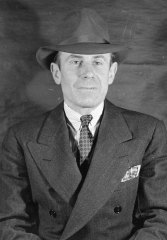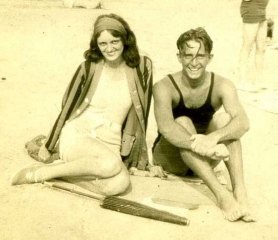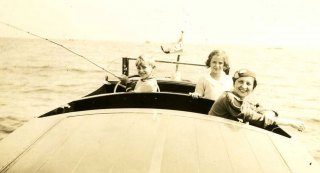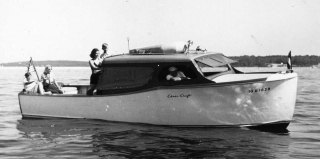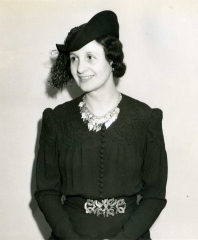Theodore W. Dunham Jr.
Theodore Walter Dunham Jr. was born 22nd Dec. 1900 in the Bronx. NY. He graduated
June 26th, 1917 after completing 2 year’s coursework from the Saunders Trades School in Yonkers. He completed courses in Math, English, Mechanical Drawing, Machine Shop & Physics. This entitled him to a “vocational school certificate” from the University of the State of New York.
By the age of 19, he was out working as a car salesman (1920 Census ).As his brother Duane (Buddy) got older, Duane and he used to take a bus to Detroit to pick up automobiles and then drive them back to NY. Both brothers were involved in selling cars with their father.
In the early years, TWD Jr. was very close to his father and brother. He used to look out for his father TWD I who was a bit of a drinker and womanizer. In addition, he was a close supporter of his brother Duane. Theodore Walter Dunham Jr. died on Feb. 11, 1960 and is buried in Interment Gate of Heaven Cemetery.
Family Life of the Dunham’s
(1924-1960)
Early Years
TWD Jr. and Mildred met via their parents. Through some means Grandpa Dunham & Grandmother Ida had known Grandpa & Nanny Brown. Married on Oct. 30, 1924, TWD Jr. & Mildred suffered through the Great Depression. Jeanne recalls Mildred telling stories of the hunger, bread lines and of her husband not having a warm coat. A friend who was a fireman in NYC stole a coat from the fire station and gave it to TWD Jr. so he could stay warm. Mildred removed the brass buttons replacing them with black buttons so that the coat would not be as recognizable. They lived to the point of just finding or earning enough money to eat.
Later Years
Boating became “the” family activity of the Dunham’s. The family would take one of the motor boats that were for sale out into Long Island Sound – often overnight!
During the summer, the family also found pleasure in going to either of two retreats. The first place, Tunnell’s was an old boarding house which accommodated 15 families with rooms, communal bathrooms, and great food (akin to a hotel). The children played board and parlor games.
The adults would group around the piano and sing songs. The second place was the town of Quogue in Long Island (Tiana Bay) where the family could play croquet, lie in hammocks, read, swim & boat. (TWD I & Grandmother Ida also went each summer throughout their life to a boarding house).Nana’s talents were particularly enjoyed by the family. She was a wonderful cook and baker of deserts. She also played the piano. The family would stand around the piano and share in her playing classical and modern music.
Sometimes TWD Jr. & Nana danced inside the home.
Eventually, the family enjoyed belonging to the Larchmont Yacht Club. TWD Jr. & Nana had a good relationship though they were very different people. Being business-oriented, TWD Jr. thought about his business practically 24 hours a day which is why the family never went anywhere – except on boats. Nana didn’t care for boating because she would get sick. (Kaye was fearful of water)
TWD Jr. was not a church-going man. He joined the Catholic Church so he could marry Mildred there. Usually on Sunday, he headed to the boatyard. If he was not at the yard, he would drive the family to church and pick them up. On the other hand, Nana was a very religious Catholic who attempted to instill within her children very rigid, moral values. She saw to it that the children went to “religious instruction” during the week on Wednesday’s. The strength of Nana’s religious conviction can be seen in the following. Not being able to drive – when TWD I was working, Nana would walk about 5 miles to take her children to church service.
As a father, TWD Jr. was wonderful with Jean & Don in terms of being caring, loving or generous. On the contrary, according to Nana, Jeanne & Rosemary MacGregor, he was both physically & emotionally – cruel & abusive to his son Ted. It began in infancy! Everyone recognized its occurrence but no one could determine why it was happening or how to stop it. Therefore, it was never dealt with or stopped. Grandmother Ida, spoke of it. Nana no doubt thought she could make it better or stand between them – but she was unsuccessful. Looking back, Nana regretted & blamed herself for not being able to resolve the problem or help it in any way. It is interesting to note that my father has always denied to me that my grandfather was anything but proper in his treatment toward him.
Otherwise, the home was a good one!
